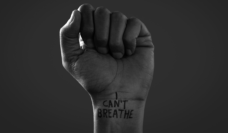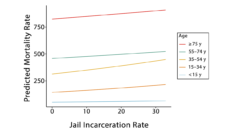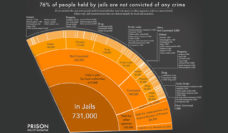Solitary confinement is a method of imprisonment that involves isolating individuals to a cell the size of a parking space for 23 hours a day. A toilet, sink, and bed are all crammed into the small, often windowless space. Solitary confinement creates a state of extreme social deprivation that harms both mental and physical health. Yet it is still used across the globe, including in the US where people can remain in solitary confinement for decades.
In 2012, a federal class action lawsuit was filed on behalf of individuals who have been held in solitary confinement for over a decade in California’s Pelican Bay State Prison. The case argued that such prolonged periods of solitary confinement should be considered cruel and unusual punishment in violation of the Eighth Amendment to the US Constitution.
Using data from expert testimony presented during the case, our team set out to determine the lifetime burden and costs of cardiovascular disease associated with solitary confinement. We found that, among incarcerated men who were 27-45 years old, 47.5% of those living in solitary confinement cells had high blood pressure compared to just 16.5% of those who were held in less isolating conditions. In other words, the prevalence of high blood pressure was 31% higher among those held in solitary confinement.
By revealing the significant cardiovascular disease burden and costs associated with solitary confinement, we call on medical professionals and cardiovascular disease organizations to join the fight for reform.
We then predicted the disease burden and costs that would result from the increased high blood pressure diagnoses associated with solitary confinement. We did so by using national estimates of the lifetime increase in heart attacks, strokes, loss of quality-adjusted life years (QALYs), and healthcare costs associated with a new diagnosis of high blood pressure at an average age of 35 years old. These estimates were generated by the Cardiovascular Disease Policy Model.
We assumed that 25,000 people are currently held in the US in the extreme isolation conditions similar to those experienced by the men at Pelican Bay. Given this, the increase in high blood pressure alone from such conditions of solitary confinement results in at least 78 additional heart attacks, 163 additional strokes, and 5,673 additional QALYs lost over their lifetimes. Solitary confinement also contributes $155 million in additional medical costs. Twenty-five thousand is a very conservative estimate of the number of people currently in extreme, long-term solitary confinement. So these values are likely considerable underestimates of the true disease burden and costs associated with solitary confinement.
The 2012 federal lawsuit was ultimately settled in 2015 and ended the practice of indeterminate solitary confinement within California. However, four years later, the courts continued to find instances of constitutional violations in the state. And the use of severe and long-term isolation during Covid-19 is reported to have sky-rocketed. Instead of adhering to public health guidelines, US facilities have turned to solitary confinement as a misguided disease control strategy. This is dangerous, inhumane, and unacceptable.
The battle to end this cruel and unusual practice continues. By revealing the significant cardiovascular disease burden and costs associated with solitary confinement, we call on medical professionals and cardiovascular disease organizations to join the fight for reform.
Photo via Getty Images















